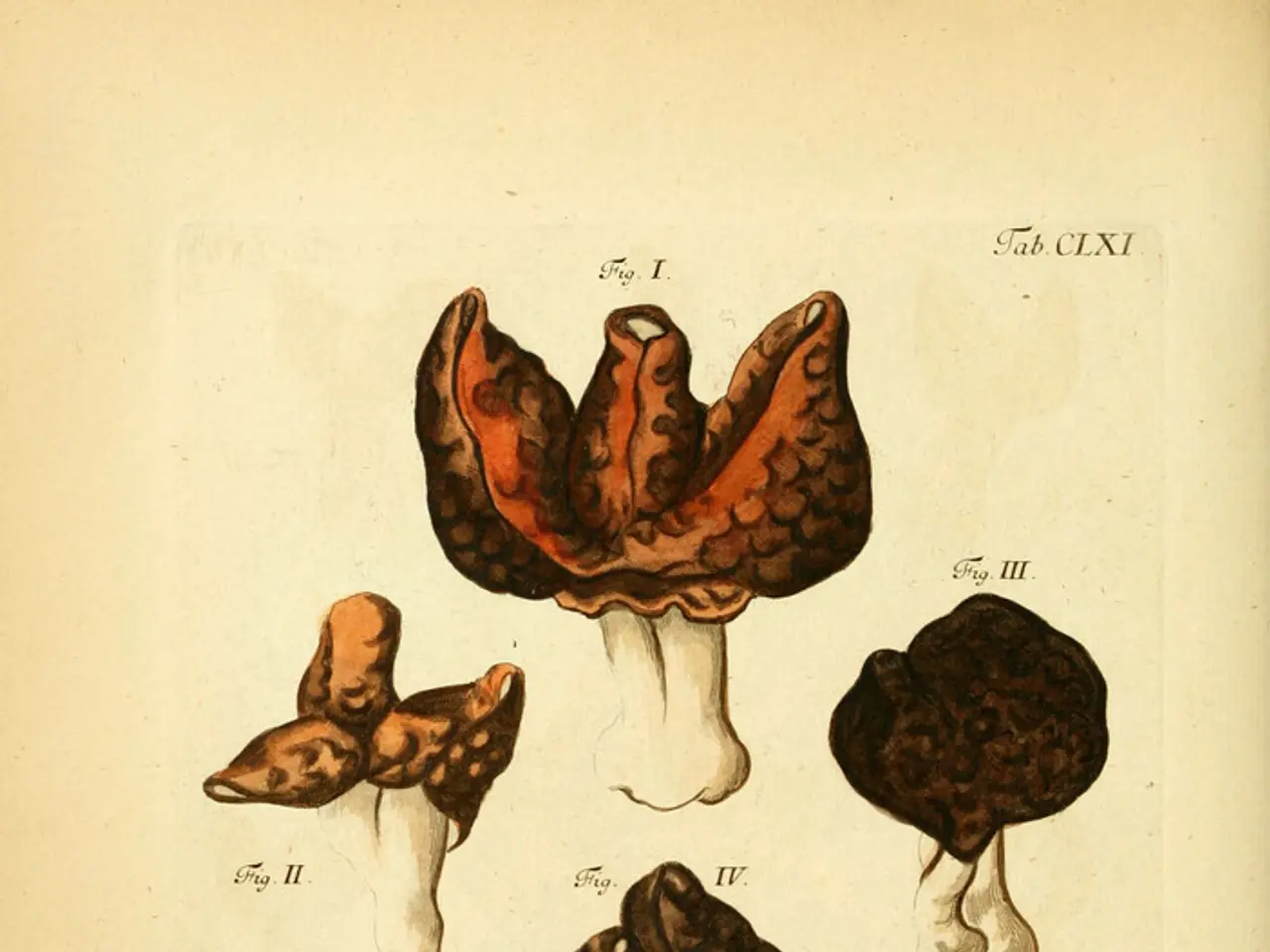Lions Mane and Multiple Sclerosis: Is It an Effective Treatment?
In the realm of neuroprotection and potential treatments for Multiple Sclerosis (MS), the lion's mane mushroom (Hericium erinaceus) has garnered significant attention. This edible fungus, known by several names such as the pom pom mushroom, Japanese yamabushitake, and the hedgehog mushroom, has been used in food and herbal remedies in East Asia for centuries.
Recent research suggests that lion's mane may hold promise for MS patients. Preclinical studies indicate that it possesses neuroregenerative, anti-inflammatory, and antioxidant properties, which could theoretically benefit nerve repair and reduce inflammation associated with MS. These properties are attributed to bioactive compounds like erinacines and hericenones, which stimulate nerve growth factor (NGF) production, promoting nerve cell growth and myelin regeneration.
However, the current state of research on the effectiveness of lion's mane in treating MS in humans is very limited and inconclusive. While animal studies and in vitro research are promising, there is no strong scientific evidence from clinical trials in humans with MS to confirm these effects yet.
Few small human studies have explored lion's mane in relation to cognitive or mental health, but not specifically for MS symptoms. No well-controlled or large-scale clinical trials have established its safety or effectiveness for MS patients.
Some individuals with MS report symptom improvement with lion's mane, but these are personal experiences without scientific validation and should not replace standard medical treatments. It's important to note that the effects and safety of lion's mane supplements are difficult to determine due to the lack of regulation of dietary supplements.
MS is an autoimmune condition that affects the central nervous system, causing the immune system to attack the protective layer surrounding the nerves (myelin sheath). Current treatments for MS can reduce the severity of the disease and slow its progression, but they do not directly repair damaged myelin. Researchers are trying to form treatment strategies for MS that include neurotrophins, such as NGF, for myelin repair.
NGF, which lion's mane is thought to induce, also regulates key structural proteins that can compromise myelin and promotes the production of another neurotrophin involved in myelination, called brain-derived neurotrophic factor.
While the potential benefits of lion's mane in MS are promising, it's crucial for patients to consult healthcare providers before use. The clinical efficacy and safety of lion's mane in human MS patients remain unproven and require well-designed clinical trials to validate.
In addition to its potential benefits for MS, lion's mane may offer a range of health benefits, such as improving cognitive and heart health, and reducing inflammation in mice. Other studies suggest that valerian root can help people fall asleep and reduce fatigue associated with MS, but it may worsen symptoms in people with MS who experience brain fog.
It's worth mentioning that cannabis may help prevent pain and spasticity associated with MS, but there is not enough evidence to conclude that it offers consistent health benefits. People have safely consumed lion's mane mushrooms, especially in Eastern Asia, with little to no reported side effects. However, researchers have not reported any adverse effects in rodents given lion's mane extract, so it's always best to consult a doctor before taking it.
In conclusion, while preclinical research positions lion's mane as a promising candidate for neuroprotection and neuroregeneration relevant to MS, its clinical efficacy and safety in human MS patients remain unproven and require well-designed clinical trials to validate. Patients interested in lion’s mane should consult healthcare providers before use. This assessment reflects the latest information up to mid-2025 and may evolve as new studies emerge.
- Treatmentseekers with multiple sclerosis (MS) might find promise in the neuroprotective properties of lion's mane mushroom, which preclinical studies suggest has neuroregenerative, anti-inflammatory, and antioxidant properties beneficial for nerve repair and reducing MS-associated inflammation.
- In the realm of health-and-wellness, lion's mane mushroom, a significant focus in science, has been known for its multiple benefits, including potential improvements in cognitive and heart health, and reducing inflammation, which could be beneficial for individuals beyond just those with neurological-disorders like MS.
- As the current research on the effectiveness of lion's mane in treating MS in humans is limited and inconclusive, medical-conditions like MS patients should consult with healthcare providers before considering therapies-and-treatments such as lion's mane supplements, as the clinical efficacy and safety of these supplements remain unproven and require well-designed clinical trials to validate.




